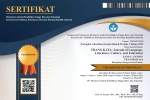Empowering Identity among English Teachers in the 4.0 Industrial Revolution: Perspectives from Tomini Bay
DOI:
https://doi.org/10.54923/jllce.v2i2.40Keywords:
English as a foreign language, teacher identity, view of remuneration, local resources, Tomini BayAbstract
This paper discusses the issue of foreign English language teachers in the Tomini Bay area in Indonesia. Utilizing several theories such as the theory of empowerment and agency as well as teachers' identity development, this qualitative research presents a study with the interview data from 10 teachers who live and teach in the Tomini Bay area. The data were analyzed by coding the interview materials into several main areas of interest. From this, several themes emerged for discussion that seemed to be influential and contribute to understanding teachers and their experiences in the language teaching context. The study reveals that teachers' views of their remuneration, their views of teaching in this technology era and pandemic situation, and their views of local potential teaching resources are significantly different from teachers who are classified as 'empowered identity' than those who are not in the category. However, the necessity of government intervention in English language teaching success in their area emerges as a crucial factor viewed by all the 10 teachers' recollections. It is hoped that this paper discussion can reveal factors that should be considered in a model offered to develop EFL teachers and their identity development in the Tomini Bay area, which later affects the success of English teaching in the surroundings and subsequently impacts English language teaching success in Indonesia.
Downloads
Downloads
Published
How to Cite
Issue
Section
License
Copyright (c) 2022 The Author(s)

This work is licensed under a Creative Commons Attribution-ShareAlike 4.0 International License.





